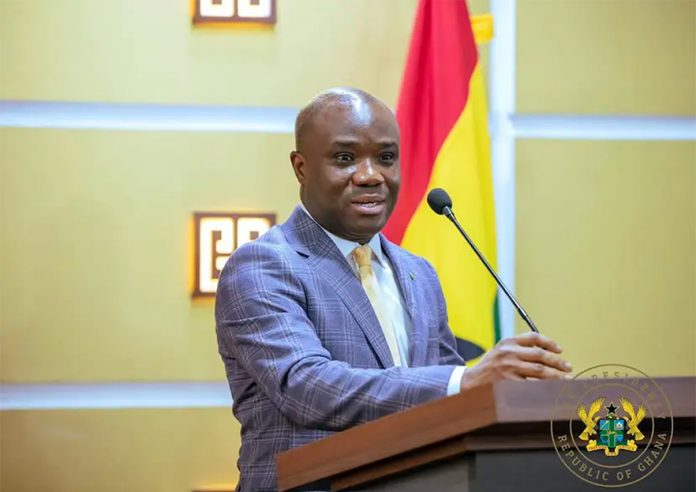A comprehensive audit conducted by Deloitte and Touche and released into the public domain by the government has exposed alarming financial and governance irregularities at the National Cathedral Secretariat (NCS), raising questions about transparency, accountability and the stewardship of funds entrusted to the institution.
Covering the period from December 2021 to December 2023, the 75-page audit report uncovered weak internal control systems, procurement breaches, unsupported expenditure, missing financial documents and questionable governance practices, despite the religious stature of many board members overseeing the Secretariat.
GH¢2.6 Million “Soft Loan” to Rev. Kusi Boateng
One of the most shocking revelations involves a GHC2.6 million loan granted by Rev. Victor Kusi Boateng, founder of Power Chapel Worldwide and Secretary to the Board of Trustees, who also doubles as Executive Director of JNS Talent Centre – the recipient of the funds.
According to the audit, a letter dated August 26, 2021 was found requesting the said loan. However, no formal agreement detailing the terms and conditions was available.
Rev. Kusi Boateng referred to the facility as a “soft loan” which typically implies lenient repayment terms and low interest.
Yet, the report noted that the loan was repaid in full within just 12 days, without evidence of any preferential interest rate.
The report also found that the loan was not processed through the Secretariat’s bankers and there was no documentation explaining why JNS Talent Centre was selected as the loan beneficiary.
“Loan facilities could be sourced from questionable entities, not fully validated by the Board,” the auditors warned.
In response, the NCS management denied any affiliation with JNS Talent Centre, stating “The National Cathedral of Ghana had no contact whatsoever with JNS Talent Centre Limited.”
Nonetheless, they acknowledged the importance of board-approved procedures and pledged to follow due process in future loan arrangements.
Oath of Secrecy Ignored
Another corporate governance failure highlighted in the report involved members of the Procurement Committee who failed to sign the mandatory Oath of Secrecy document.
Although their names appeared on the form, the absence of signatures rendered it legally non-binding.
“Non-signing of the document makes it not legally binding and difficult to know the specific individual who signed it,” the auditors stated.
Deloitte recommended that all Procurement Committee members re-sign the oath to ensure legal enforceability and accountability.
Unreconciled Revenue and Donation Discrepancies
The report revealed that the Secretariat’s financial management of donations was riddled with discrepancies. Apart from initial seed funding from the Government of Ghana, the Secretariat received donations through mobile money transfers, MoMo Pay, Shortcodes and bank deposits from churches, individuals, donor agencies and corporate organisations.
However, Deloitte noted that some of the records submitted contained failed or reversed transactions and several successful donations were missing from the financial statements. The auditors were also unable to confirm the accuracy of these records with external parties.
“As a result of the significance of the above, we were unable to determine whether any adjustments might have been found necessary in respect of recorded or unrecorded revenue,” the report stated.
Management was directed to provide a full reconciliation of all monetary donations from inception to date but as of the audit’s completion, they had yet to furnish a complete explanation or supporting records.
Missing Financial Documents and Receipts
Deloitte’s review of operating expenses in 2021 also revealed the absence of critical supporting documents as Management failed to present invoices, approved payment vouchers and receipts for several transactions.
“Without them, the entity stands at risk,” the report cautioned, adding “Good record-keeping cannot only protect the entity but support the organisation in legal or other challenges.”
Although some documents were later submitted, several key items remained outstanding as of the signing of the management letter.
The report found that the only recorded Property, Plant and Equipment (PPE) for the Secretariat was a set of furniture and fixtures valued at GHC26,000.
No additional physical assets could be verified and there was no evidence to support the completeness or ownership of any other equipment.
Conclusion
Deloitte’s findings reveal serious breaches in governance and financial accountability at the National Cathedral Secretariat.
The auditors urged the Secretariat’s management to enforce proper internal controls, ensure board oversight for all financial decisions, reconcile all donations and maintain complete financial documentation going forward.
Until these measures are fully implemented, public confidence in the management of the National Cathedral Project may continue to erode and, therefore, cast a long shadow over what was envisioned as a sacred national legacy.









